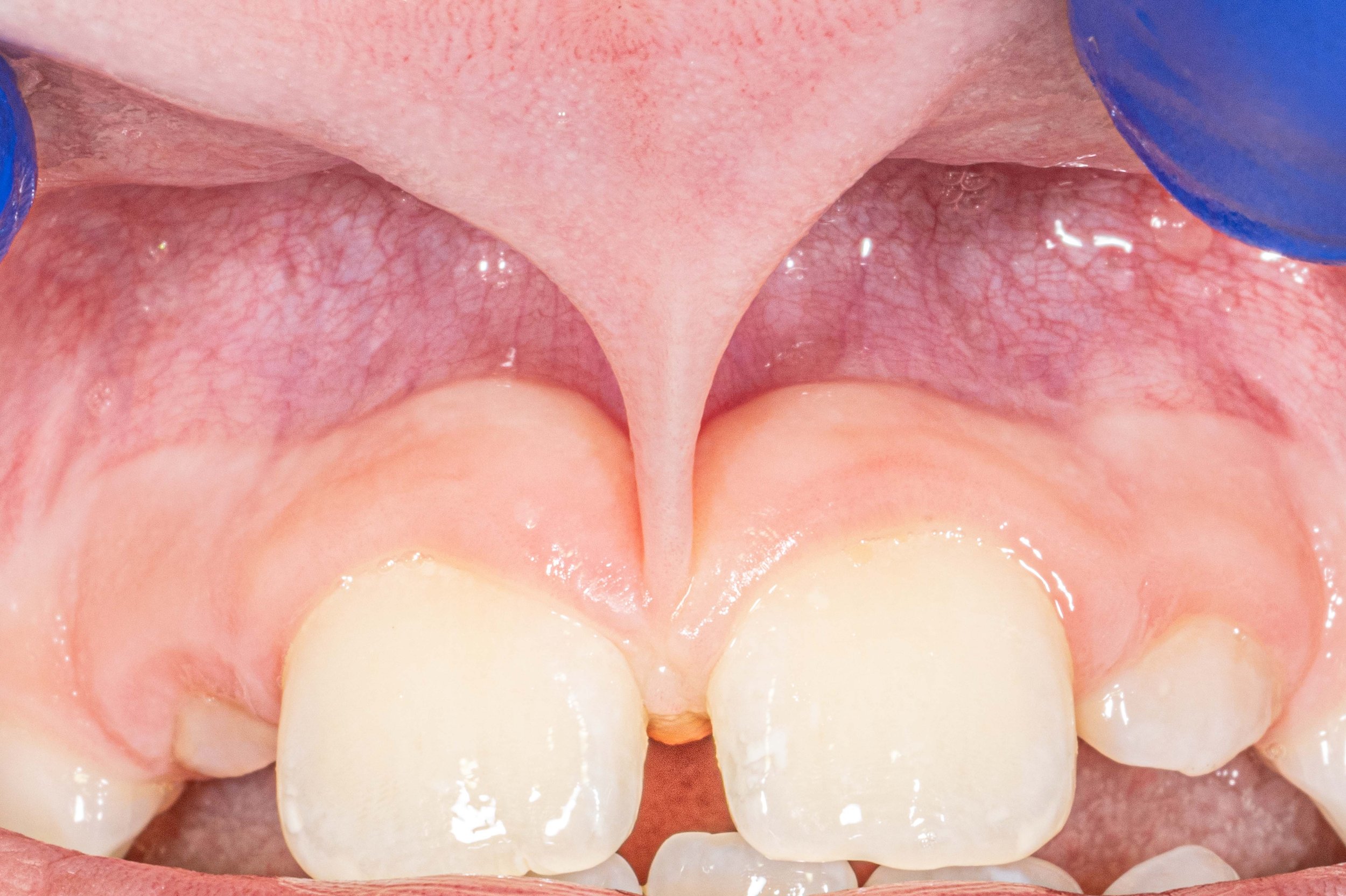FRENECTOMY
What is a Maxillary or Mandibular Frenectomy?
Frenulums are folds of tissue that connect the gums to the upper and lower lip. A person may experience a lip tie if the frenulum attachment is too short or thick. A FRENECTOMY is a simple soft tissue oral surgery procedure that will increase the range of motion to the lips, maintain a gap closure between two teeth after orthodontics, or relieve a “pull” on the gums near a tooth with recession.
A maxillary labial frenectomy relieves the tension of the tight frenum pull between the gap of upper front teeth. Many orthodontic patients have the gap closed and at the last stage of their orthodontic treatment a frenectomy is performed to help ensure the space will not reopen.
A mandibular labial frenectomy relieves the tension of the frenum pull between the lower front teeth and the lower lip. Patients experiencing recession of the lower teeth and lack of gum tissue usually will have this procedure done in conjunction with gum grafting.
Frenectomy Procedure Details
A frenectomy is a quick & easy procedure. Local anesthetic is administered to the area (tongue or lip) and the frenum attachment is relieved using a traditional surgical method or a laser. Tiny sutures are placed and resorb over a few days. Following a lingual frenectomy, you will need to do a series of tongue release therapy exercises.
Frontal view of a maxillary labial frenum
Side view of a maxillary labial frenum
Lingual Frenectomy
A lingual frenectomy corrects a tongue tie or “ankyloglossia” where the fold of tissue that extends from the floor of the mouth to the tongue may be too short or thick.
Infants can suffer from issues latching, gagging, swallowing air, acid reflux and difficulty sleeping. Some children have no speech impediments due to their tongue tie but others may have difficulty articulating sounds (l, r, t, d, n, th, sh and z). They may have a V-shaped notch at the tip of their tongue or the inability to stick out their tongue past the upper gums or roof of the mouth.
In adolescents and adults, tongue ties that were left untreated can impact oral and facial development which impacts the airway development. Patients may experience nasal breathing, heavy snoring, disproportionate sized lower jaw, altered palate development, and restricted movement of the tongue.
Treatment of a tongue tie results in a wider range of mobility for the tongue. The tongue can rest on the palate and prevent from blocking the airway at night, resulting in better sleep as well as breathing.




